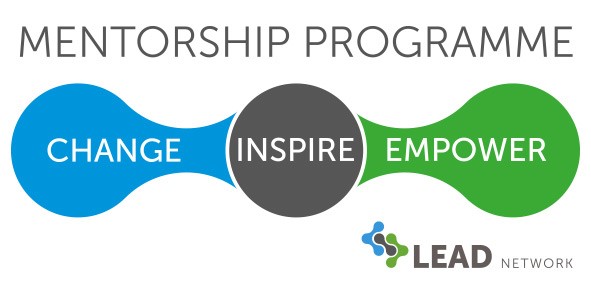MENTORSHIP SPOTLIGHT

“Developing female talent by creating successful mentoring relationships and sharing the experience of senior leaders from the Consumer Goods & Retail Sector in Europe” is the Vision for LEAD Network Mentorship Programme.
Mentorship:
- Gives access to impartial, non-judgemental guidance and support.
- Supports gaining skills, knowledge and confidence.
- Develops new attitudes and behaviour.
- Is reflecting, encouraging, challenging and supporting the career development of the Mentee.
- Gives an opportunity to learn from each other.
- Helps gaining new perspectives and insights for Mentors and Mentees.
- Those and even more benefits are only realized, however, when mentors and mentees do their parts well.
What are the characteristics of good mentors? (1)
Harvard professor Linda Hill conducted a study investigating the answer to this question. She came up with a long list with 10 points which might be true but it´s not very likely that a single person might embody all the characteristics. A more general answer to this question is given by Butler and Waldroop, two psychologists: “Mentors have an embedded life interest in coaching and mentoring others. For some people, nothing is more enjoyable than teaching – in business, that usually translates into coaching or mentoring. These individuals are driven by the deeply embedded life interest of counselling and mentoring, allowing them to guide employees, peers and even clients to better performance (..) some derive satisfaction when other people succeed; others love the feeling of being needed.” In order to identify the right mentors Butler and Waldroop recommend having a look at their behaviour at the workplace. Those with a reputation for helping less senior people to foster their career and great collaboration are the right ones to mentor somebody.
What could mentors and mentees do in order to be most effective?
– Effective mentors set high standards, invest time and effort, and arrange development experiences for their mentees.
– Career-oriented people should look for a broad set of mentors and experiences.
– Mentors should be aware of the fact that mentees will learn from their behaviour as well as from what they tell them.
– Mentors should not try to solve the problems of the mentees; instead help them finding their own solution.
– Mentees should be responsible for their own development plans and should initiate the plan.
– The support of a mentor should be based on a wide foundation of experiences including other departments within the organization, external stakeholders as well as suppliers, customers and partners.
– Beginning and ending of a mentorship should be done with care.
– Mentees should use mentoring to experiment with different behavioural styles and evaluate the results of these experiments.
(1) These recommendations are based on an article from Harvard Business School Press: “Becoming an Effective Mentor: And a Receptive Protégé” (2006)
All LEAD Network Partner Ambassadors were asked to nominate a Mentor as well as a Mentee to participate in the LEAD Network Mentorship Programme which will last 6 months from May to November 2018 . If your organisation is an official LEAD Network Partner and you are interested in participating, please get in touch with your Partner Ambassador or by contacting us via mentorship@lead-eu.net . We will be closing soon the application process.
Maren Gerhäuser- von de Fenn, taking care of the LEAD Network Mentorship Programme, Head of Leadership Development METRO AG, Germany



